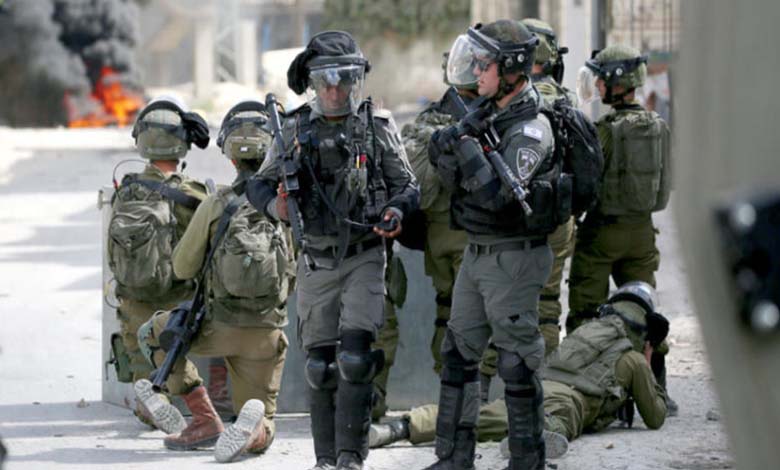Settler Violence in the West Bank: Intimidation Despite Politics and Military

On Route 60, which runs through the West Bank from north to south, the prosperity of settlers is evident through their acquisition of land, military power, and political authority.
-
Gaza Negotiations: 7 Arduous Hours
-
The Blood of Dawn Floods Gaza… The Sound of Bombings Silences Ceasefire Hopes
This is the conclusion of the British magazine The Economist in a report.
The magazine compares managing along this route to a journey on a real estate road, where the sides are adorned with signs in Hebrew advertising “Last apartments at Mitzpeh Livona” or “Your future home at Ofra,” promising that “your grass could become greener” as seen from a villa in Tsofim.
The magazine states that the war on Gaza has encouraged settlers, as Benjamin Netanyahu‘s coalition government relies on parties supported by this group to form a parliamentary majority, giving them significant influence over the conflict.
-
Gaza War: How Did “Amazon” Contribute to the Precision of Israeli Airstrikes?
-
In Gaza: Bombing and Overcrowding, Two Faces of One Death
Some fear that this influence grants them a veto over any ceasefire.
At the same time, the ongoing conflict increasingly encourages settlers to seize land in the West Bank.
As a senior government member puts it: “With everyone distracted, last year due to protests against the judicial reform and now due to the war, we have done unprecedented things for the settlements.”
For Orit Strook, the minister in charge of settlements and a member of the right-wing Religious Zionism party, it is “like a miracle period.” She says: “I feel like someone who was waiting at a traffic light and then sees it turn green.”
-
Hostage Operations: How Does Israel Gather Intelligence in Gaza?
-
Despair Increases in the “Death Zone”: UN Alarm Over “Appalling Conditions” in Gaza
Strook was addressing residents in a settlement south of Hebron in the West Bank, one of several settlements that the Israeli government approved for expansion last June.
The new settlements will include 5,295 homes on an area of 2,965 acres.
The British magazine notes that since 2022, the Israeli government has also started planning for settlement outposts that were previously unrecognized.
-
Where is Sinwar in the Gaza Negotiations? Hamas Leader Reveals His Role and Communication Methods
-
Israel Announces End of Military Operations in Gaza
The Israeli non-governmental organization Peace Now, which monitors settlement construction, considers this the largest land appropriation in the West Bank since the signing of the Oslo Accords between Israel and the Palestinians in 1993.
International law experts agree that all Israeli settlements in the West Bank are illegal under the Fourth Geneva Convention, which prohibits countries from transferring populations into occupied territories. The International Court of Justice confirmed this view in July.
-
Gaza Negotiations and Hostage Families: Mounting Pressure Awaiting the ‘Last Chance’
-
Between Sinwar’s Approval and Israel’s Rejection… An Uncertain Fate Awaits Gaza Truce Negotiations
However, Israel disagrees and claims that the status of the land is “disputed.”
Today, about half a million settlers occupy parts of the West Bank. Another 200,000 live in neighborhoods in East Jerusalem.
Some of these settlements were built with the approval or encouragement of the government at the time. Others have emerged in defiance of the country’s leaders.
-
Threats and Warnings: Ben Gvir and Smotrich, Obstacles to the Gaza Truce
-
Analysts reveal the suffering of citizens in Gaza due to the ongoing conflict
In addition to Strook’s ministry, which directs government funding to the settlements, her party leader, Bezalel Smotrich, also a settler, is Israel’s Minister of Finance and is responsible for much of the non-military administration of the West Bank within the Ministry of Defense.
Escalation of Settler Violence
The Economist has highlighted the sharp increase in violence committed by settlers in the West Bank since Hamas’s attack on Israel on October 7.
Two days ago, armed settlers attacked a small Palestinian village just south of Bethlehem, followed by Israeli soldiers. A forty-year-old Palestinian was killed and three others were injured.
-
Gaza War Casts a Shadow over ‘Nagasaki Anniversary’… Politics Overshadow Humanity
-
Illusory Optimism or New Pressures: What Lies Behind American Claims About Ceasefire Negotiations in Gaza?
On August 15, armed settlers attacked the Palestinian village of Jit, setting fire to homes and cars and killing a 22-year-old man.
Netanyahu condemned these attacks. However, local residents said that Israeli soldiers were present during the attack but did not intervene for some time.
According to the United Nations, this is the eleventh time a Palestinian has been killed by settlers since the Gaza war began.
The rising violence by settlers has forced Palestinians to flee several small villages in remote areas of the West Bank.
-
Three Arab States Refuse to Participate in Gaza Peacekeeping Force
-
Death Toll Rises in Gaza and Tunnel Discovered Under Philadelphi Corridor
“Ben-Gvir” the Inciter
According to Israeli officials, the police have been reluctant to investigate settler violence since the appointment of Itamar Ben-Gvir, leader of the “Jewish Power” party and also a settler, as Minister of National Security.
Israeli prosecutors only began to investigate attacks on Palestinians seriously because the government is concerned about Western allies imposing sanctions on settlers.
It seems that Israeli generals are worried. In July, Major General Yehuda Fox left his position as head of the Central Command of the army, the de facto military governor of the West Bank, with a speech accusing settlers of allowing a “minority” to engage in “extreme nationalist criminal activities.”
-
Confessions of an Israeli Soldier: We Destroyed Homes in Gaza for “Trivial Reasons”
-
“Theft, Arson, and No Justification”.. Israeli Soldiers Refuse to Return to Gaza
He said that they, “under the guise of war and desire for revenge,” were “terrorizing Palestinian civilians who posed no threat.”
But even amidst such warnings, many soldiers are part of this violence, in uniform and with their weapons.












